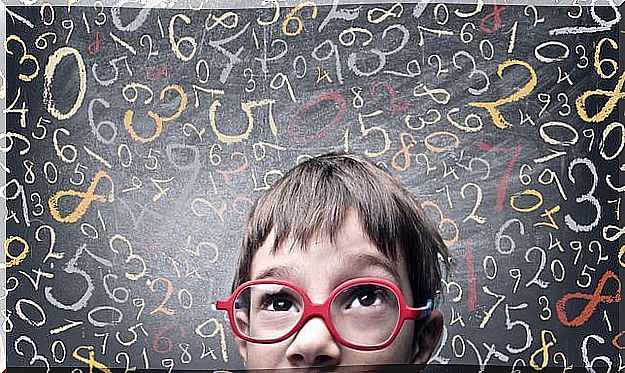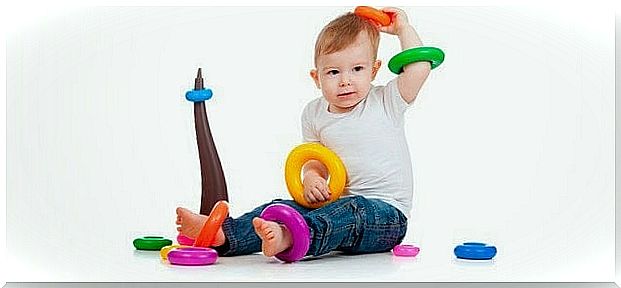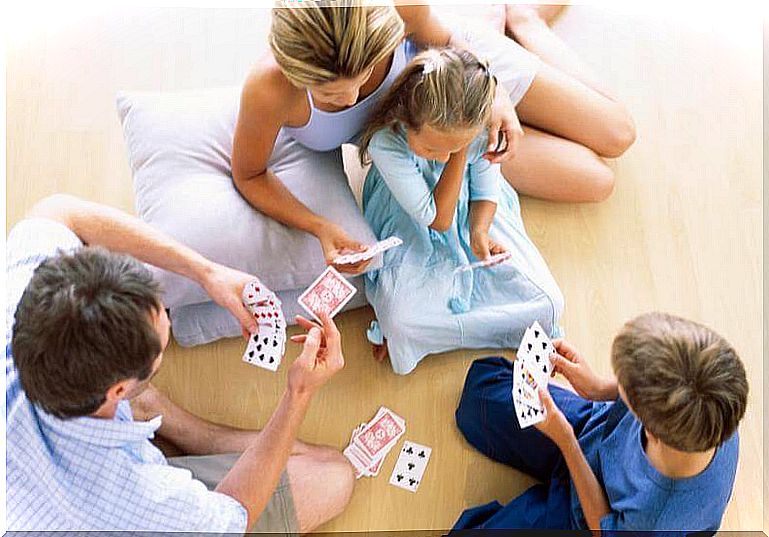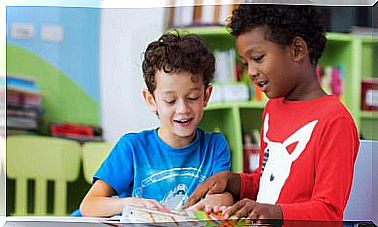Children’s Reasoning Is Based On Logic, Learn To Understand Yourself With It

More and more often children manage to amaze the adults around them with reasoning elaborated with impeccable, clean and beautifully posed logic.
However, other times it is difficult to understand them, because that same little person who is sometimes so even-tempered, gets irritated and breaks into terrible tantrums. But these have nothing to do with his reasoning not being logical, the tantrums arise more from his low capacity for frustration.
Although it seems incredible, before children reach one year of age they have already developed processes of investigation, reasoning and translation of information, although these are simple reasonings. All mothers and fathers already know very well that their children learn by imitating, but they also learn through the use of cause and effect relationships between an object or a situation or another and the method of trial and error. They use all of this to develop logic and reasoning skills.
Yes, it is true, all this is a bit overwhelming, but science has shown that very early, children discover that their behaviors and actions have an impact on the behaviors and actions of the people who are related to them.
And to prove it, there are some examples: Children cry to indicate their needs and their parents almost immediately react to satisfy those needs. When that happens, they associate that if they cry their needs will be satisfied; They learn that using the logic they develop through the relationship between a cause and an effect. Simple, but effective!
In imitation tasks there is also logic

Later, when the baby can grasp and manipulate objects, he learns to use them through imitation. You can play a toy drum when you observe how it is done and you are more and more aware of what happens when you repeat the same actions over and over again, because with repetition you are again evaluating the consequences of the relationship between a cause and its effect.
At that age, it is typical for them to repeatedly drop an object from a raised surface to make their parents pick it up again and again, and also to listen to the sound it makes when it falls.
During the second year of life, children’s logic and reasoning skills improve. That’s when they use trial and error to solve problems. By the age of two, they better understand the patterns and relationships between the impacts that certain behaviors have on their dad, mom, and even grandparents, and they begin to take advantage of those patterns in various ways. This is how, for example, if before he only moved an object with his hands, he begins to use different parts of his body, such as his feet or his head.
By 24 months of age, children know that certain actions affect different people and objects in different ways. They understand the functions for which various objects were designed, and by 36 months of age they can solve problems more effectively. So they practically know how to learn and move in the real world, the one that has to do with objects and with certain tasks that they must do or avoid doing, like sticking their fingers in the fire.
Use logic to get along with your baby

At this point in his life, all that remains for your child to experience the outside world because he already knows how to walk, he knows how to play and he also knows that his parents will always be there to take care of him and love him no matter what happens.
However, as your child grows it becomes increasingly difficult to understand you with him and this sometimes happens because adults do not know how to communicate in the same language. They only understand logical questions, situations that they have already experienced and that they have evaluated through the method of cause and effect and imitation. He knows that if he approaches the fire he can burn himself and that if he walks imitating his father, his relatives laugh and kiss him.
Many times it is we, the parents, who do not understand the situations of injustice to which we expose children, which require an understanding between their reasoning and the social rules that they do not understand. How to ask a child overnight not to throw a tantrum, if he learned from a baby that if he cried his needs were met? Well speaking, but speaking in their language.
The child is not going to care if people are looking at him or not when he cries inconsolably in the supermarket because they did not buy him a piece of candy. He just wants it and will cry until he gets it, especially if his parents have pleased him on previous occasions. Your logical reasoning tells you: if it worked once, it will always work. I just have to cry for them to give it to me.
To solve this problem, and many others, it is necessary to speak with him calmly and explain why this time for example he will not get the candy. Presenting the situation, showing him examples and pointing out the possible solutions to the conflict will help you to understand him.









